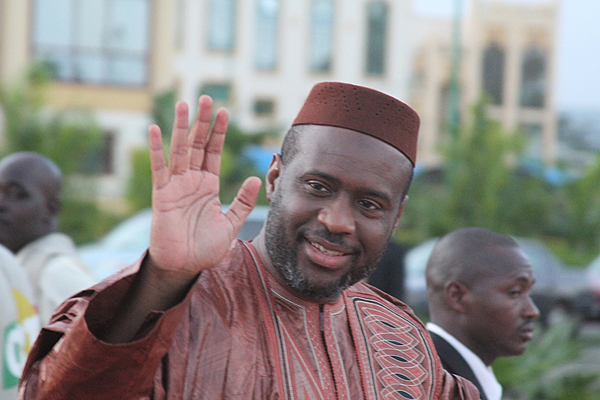Gambian auditor: Shocking Facts About His Forceful Removal
The recent forceful removal of Gambia’s Auditor General, Momodou Ceesay, by police has sent shock waves across the country. This unprecedented move followed his refusal to accept a ministerial appointment amid a cabinet reshuffle. The incident has ignited public protests, raising critical questions about the independence of oversight institutions and the state of democracy in Gambia.
Institutional Independence
One of the main concerns surrounding this removal is the threat to institutional independence. The Auditor General’s office is constitutionally guaranteed autonomy to ensure transparency and accountability. By forcibly removing Ceesay, the government appears to undermine these legal protections, sending a chilling message to other public officials about the limits of their independence.
Public Protests
The police action sparked widespread protests in Banjul and other parts of the country. Citizens, civil society groups, and lawmakers expressed outrage over the breach of constitutional norms. Demonstrations were organized to demand reinstatement and to safeguard the Auditor General’s office from political interference. The protests highlighted the growing tension between governance reforms and executive power.
Legal Controversies
Several members of the National Assembly condemned the removal as unconstitutional. Legal experts argue that the Auditor General enjoys protections that prevent arbitrary dismissal. The appointment of Cherno Amadou Sow as a replacement has been met with skepticism, as the new appointee has yet to assume duties due to ongoing public backlash and unresolved legal questions.
Political Tensions
The forced removal of the Auditor General has intensified political tensions in Gambia. Critics argue that the government’s decision reflects attempts to consolidate power and suppress dissent. Analysts warn that undermining the independence of watchdog institutions could weaken public trust in governance and create long-term instability.
Human Rights Concerns
Several activists from the group “Gambians Against Looted Assets” (GALA) were arrested during anti-corruption protests. Human rights organizations have condemned these actions, raising alarms about the erosion of civil liberties. The incident highlights the delicate balance between law enforcement and the protection of democratic freedoms in the country.
Media Coverage
International media has closely followed the story, highlighting the unusual nature of the police intervention. Coverage emphasizes the risks posed to institutional accountability and the broader implications for governance in West Africa. The global attention has put additional pressure on the Gambian government to justify its actions and adhere to constitutional norms. Read more on our in-depth analysis
Governance Implications
The removal of the Auditor General has significant implications for governance in Gambia. By bypassing legal and institutional protocols, the government risks weakening oversight mechanisms. This sets a worrying precedent for future appointments and the enforcement of accountability measures within public institutions.
Economic Impact
Transparency in auditing is crucial for the economic stability of any nation. The abrupt removal of the Auditor General can undermine investor confidence, delay financial reporting, and impact the allocation of government funds. Businesses and international partners closely monitor the situation, as sustained governance crises could affect trade and development projects.
Regional Observations
Regional bodies and West African governance experts are observing the developments closely. Many stress that protecting the independence of auditors is critical for combating corruption and promoting good governance. The Gambian case serves as a cautionary tale, highlighting the need for balanced power dynamics and respect for institutional autonomy across the region.
Gambian auditor And International Standards
Gambian auditor and International Standards
Maintaining the independence of auditors is a key benchmark in international governance standards. Forcing a removal undermines Gambia’s commitments to transparency and accountability, affecting the country’s reputation abroad. International observers call for adherence to due process and legal norms to protect democratic institutions. For more details on global auditing standards, visit IFAC – Auditor Independence Guidelines.
Gambian auditor And Future Reforms
This incident has sparked calls for stronger legal frameworks to prevent arbitrary dismissals and protect institutional autonomy. Future reforms may include clearer guidelines for appointments, dismissal procedures, and safeguards for the independence of critical oversight bodies.
Conclusion: Gambian auditor removal as a National Warning
The forceful removal of the Gambian Auditor General is more than a political dispute, it is a warning about the fragility of institutional independence. Ensuring adherence to legal and constitutional protocols is vital to maintain democracy, safeguard civil liberties, and preserve public trust. The events surrounding this reshuffle highlight the urgent need for reforms that balance executive authority with the autonomy of oversight institutions.



